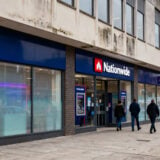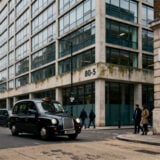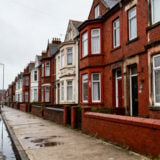This took the average UK price to £214,000 in June 2016, some £17,000 higher than in June 2015 and £2,100 higher than the previous month but it should be noted that the data was recorded before any Brexit effect would be discernible.
The HPI report says that strong house price growth has been seen since the end of 2013 but there is regional variation and in June the main contribution to the increase in UK house prices came from England.
On a regional basis house prices increased by 9.3% in England over the year to June 2016, with the average price in England £229,000. Wales saw house prices increase by 4.9% to £145,000 while in Scotland, the average price increased by 4.6% to £143,000. The average price in Northern Ireland is was £123,000.
London continues to be the region with the highest average house price at £472,000, followed by the South East and the East of England, which stand at £309,000 and £270,000 respectively. The lowest average price continues to be in the North East at £124,000.
However, the East of England has replaced London as the region which showed the highest annual growth, with prices increasing by 14.3% in the year to June 2016. Growth in London remains high at 12.6%, followed by the South East with a 12.3% annual growth. The lowest annual growth was in the North East, where prices increased by 1.5% over the year.
Richard Snook, senior economist, PwC, pointed out that the figures only capture one week of market activity after the vote to leave the EU on 23 June, so it is too early to draw any firm conclusions from this set of data.
‘Nevertheless, we expect that the vote to leave the EU will have a significant impact on the housing market. In our main scenario, average UK house property growth will decelerate to around 3% this year and around 1% in 2017,’ he said.
‘Cumulatively, our estimates suggest average UK house prices in 2018 could be 8% lower than if the UK had voted to stay in the EU,’ he added.
According to John Goodall, chief executive officer of peer to peer platform Landbay, high demand drove the uplift in prices, with mortgage lending volumes jumping 16% in June alone. He pointed out that all eyes will be on next month’s figures, and early indications suggest house prices growth cooled slightly in July, but adding that any Brexit effect won’t be seen immediately.
Increased house price growth in June could also have been due to the new stamp duty rate for buy to let purchasers, according to Andrew McPhillips, chief economist at Yorkshire Building Society.
‘This caused landlords to flood the market to beat the new rate, which resulted in a drought of available properties after the new tax came into force in April, consequently exacerbating the supply shortage,’ he explained.
‘Although we are likely to see fluctuations in demand in the short term due to uncertainty following the result of the EU referendum, the underlying lack of supply will remain as a constraint on market activity and is likely to push up house prices in the long term. This will make house prices unaffordable for an increasing number of people unless the country builds more homes to meet demand,’ he added.
Jonathan Hopper, managing director of the buying agents Garrington Property Finders, believes that the UK housing market has entered unknown territory. ‘We’re seeing increasing numbers of standoffs between buyers who feel emboldened to ask for big discounts and sellers who are burying their heads in the sand,’ he said.
‘It’s early days but all the signs are that we’re heading for a soft landing rather than a crash. With rock bottom interest rates and sentiment dominated by procrastination rather than panic, the big fall is in transactions rather than prices, giving the upper hand to buyers who are willing to work hard,’ he added.





